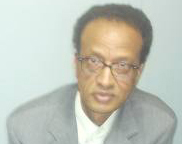Establishing an environment for inclusive knowledge- based dialogue on the political process in Eritrea
 By Fesseha Nair
By Fesseha Nair
“Let us all act to resolve our internal problems by dialogue”
“Let us make Eritrea the place to share and care”
Stop accusing and blaming each other but come together and evaluate the past and come to invent new ideas promoting innovations.
We failed to build institutions of both legislative and executive bodies as well as the laws, procedures and norms by which we operate. The struggle from dictatorship to democracy demands the fundamental needs of our diverse people, thus we must have clear methods of struggle to bring fundamental changes.
The Eritrean forces for democratic change have had experimented variety of means in the last 27 years, to bring regime change in Eritrea. But all these approaches failed to unite and work together except deteriorated the spirit of mutual respect and trust.
It is not easy to evaluate the exact methods in transition from dictatorship to democracy and reasons that led to the result of the current situation of the opposition forces in Eritrea, but it would be useful to investigate the reasons behind the status quo in the opposition camp which might help us pick the mechanisms that could lead to our aspired democratic change.
Twenty years has passed in internal political bickering and conflict.
In this article I will be dealing with some proposals that can help us to come to the table of negotiations rather than accusing each other who is the right or wrong.
1. All forces for democratic change must adhere to the guiding principles of dialogue and have firm commitment that dispute will be settled peacefully- that can enhance the credibility of our struggle from dictatorship to democracy.
2. The initiative to engage in dialogue should be shared by all.
3. A dialogue must be inclusive and participatory to be legitimate and meaningful it must encompass all forces for democratic change.
4. The dialogue must fulfil these objectives.
a/ articulated and critical analysis of the conflict.
b/ foster national consensus on the challenges and opportunities facing our struggle from dictatorship to democracy.
c/ reaching an agreement on common national agenda.
5. Formulate an objective on this time of struggle and create consensus on national priorities.
6. Formulate a comprehensive national agenda to remove the dictatorship and lay foundations for democratic transition.
7. A national dialogue can help us towards democratic agenda and action plans that must be owned by the people. It must not be limited at the leadership level but disseminated to the grassroots in order to achieve a strong national cohesion.
Conflicts are not all negative but when actors attempt to resolve conflicts by moving outside established institutional frame work they can create severe problems.
Forces for democratic change should have solved its internal conflicts by dialogue; establishing an environment for an inclusive knowledge-based dialogue on the political process aimed to achieve the desires of our people.
By dialogue ;disputes arisen inside the forces for democratic change should have been processed, debated; reacted and resolved.
At this moment; the writer of this short article recommends that let us all be involved to bring all forces for democratic change at the table and resolve the dispute by dialogue in order to get the trust of our people as an alternative to the current oppressive regime of one man rule.
Short URL: https://english.farajat.net/?p=11265















